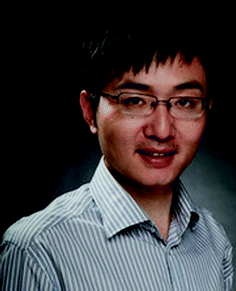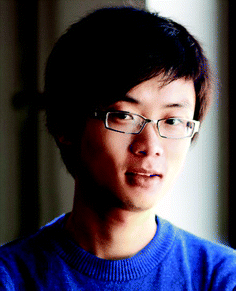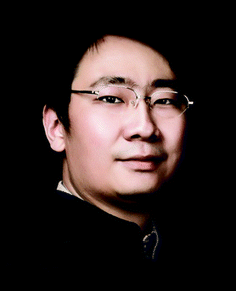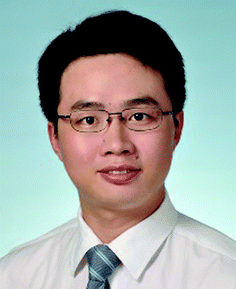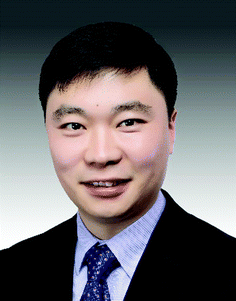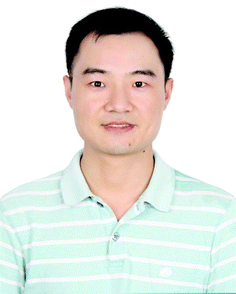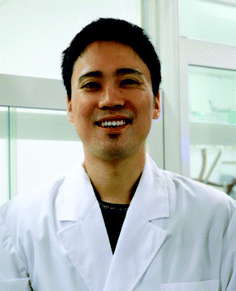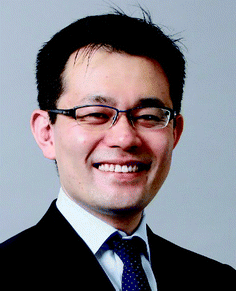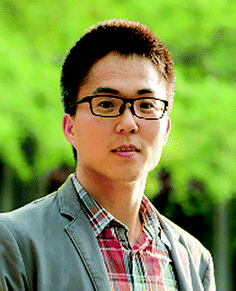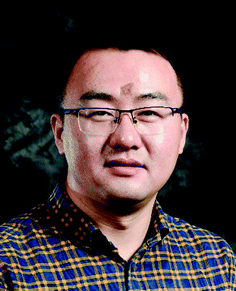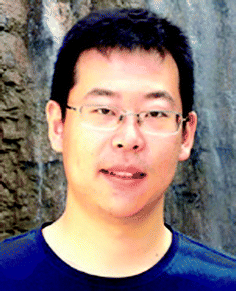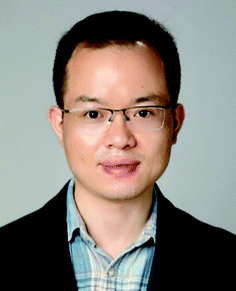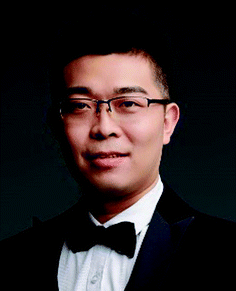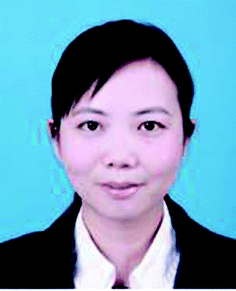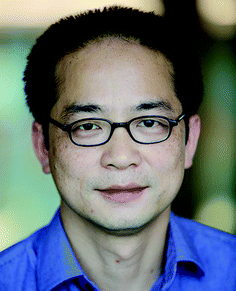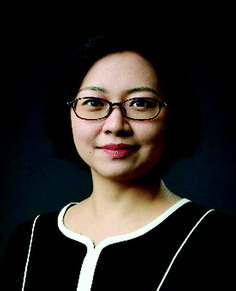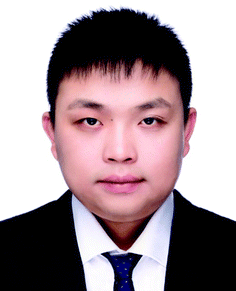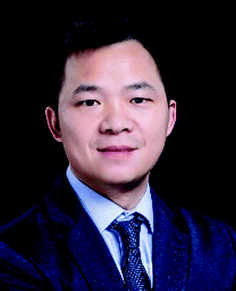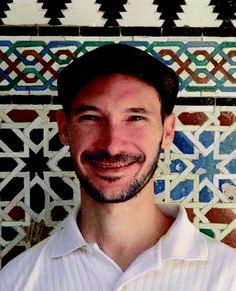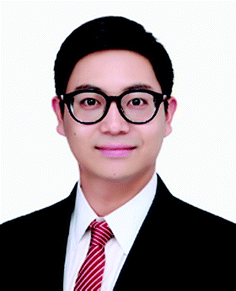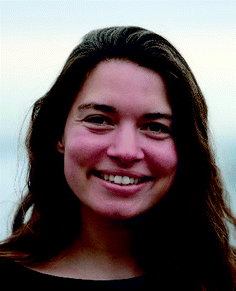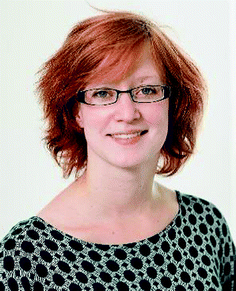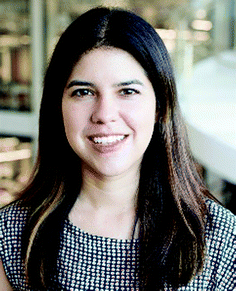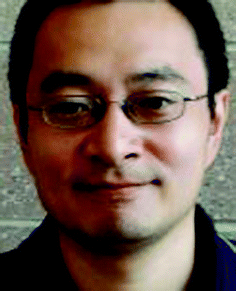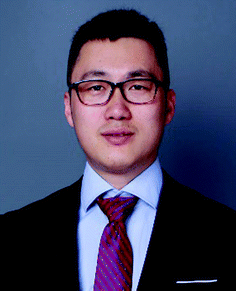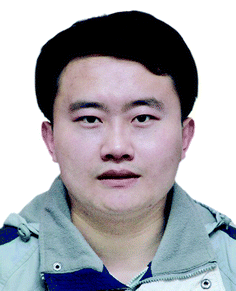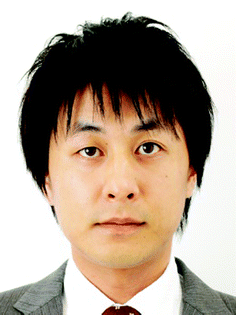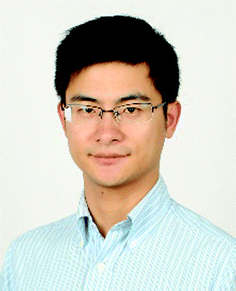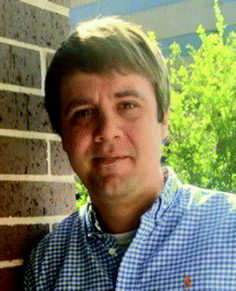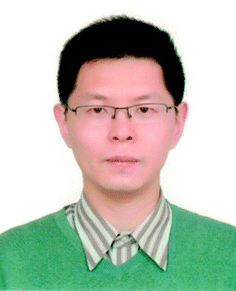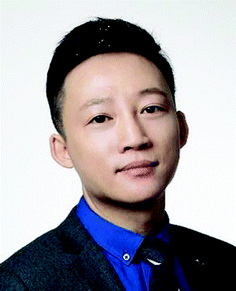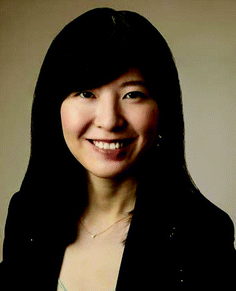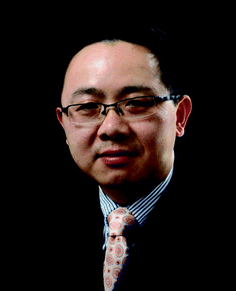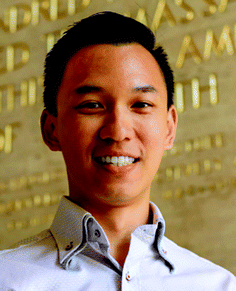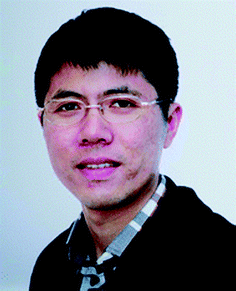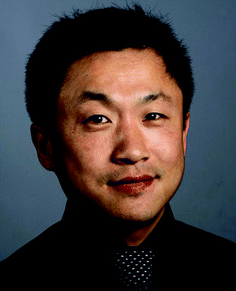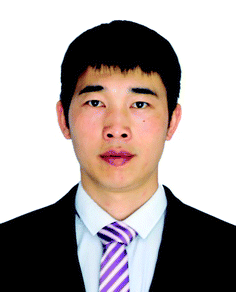Journal of Materials Chemistry B profiles: contributors to the Emerging Investigators 2020 issue
Our 2020 Emerging Investigators themed issues gather some of the best research being conducted by scientists in the early stages of their independent career. Each contributor was recommended as carrying out work with the potential to influence future directions in materials chemistry. Congratulations to all of the researchers featured, we hope you enjoy reading this issue.Dr Nadav Amdursky did his PhD at Tel Aviv University under the guidance of Profs Ehud Gazit and Gil Rosenman. He did his postdocs with Profs David Cahen and Mudi Sheves at the Weizmann Institute and Prof. Molly Stevens at Imperial College London. Since 2016, he has been an Assistant Professor at the Technion – Israel Institute of Technology, Schulich Faculty of Chemistry. His research topics include various types of charge transfer and energy transfer processes across biological materials and biopolymers, measured with bioelectronic devices or using fast spectroscopy.
Dr Shengqiang Cai is currently an associate professor in the Department of Mechanical and Aerospace Engineering, and the Materials Science and Engineering program at the University of California, San Diego. He obtained his PhD degree from Harvard University in 2011. After graduating from Harvard, he spent one year as a postdoc at MIT. His research is mainly focused on the mechanics of materials, chemo-mechanical coupling phenomenon in polymers and the design and fabrication of soft robots.
After Dr Chengpeng Chen received a BS degree in chemistry from the Ocean University of China in 2011, he joined Dr Dana M. Spence's lab at Michigan State University as a graduate student in analytical chemistry and obtained his PhD degree in 2015. After a 3 year postdoc with Dr R. Scott Martin at Saint Louis University (MO, USA), he became an assistant professor in the Department of Chemistry and Biochemistry at the University of Maryland Baltimore County in 2018. His research lab is interested in integrating scaffolding materials in microfluidic devices for 3D cell culture for quantitative pathophysiological studies.
Dr Xin Chen is the Assistant Dean of the School of Chemical Engineering and Technology and Head of the Institute of Polymer Science in Chemical Engineering, Xi'an Jiaotong University. He is also an Honorary Professor at The Fourth Military Medical University and at Sichuan University of Science & Engineering.
Prof. Chen is mainly engaged in the research of synthesis, assembly, functionalization and application of organic/inorganic nanocomposites for disease therapy and tissue engineering. He has published over 50 papers, 3 book chapters and 8 patents as the corresponding author and/or first author in the fields of biomedicine and materials science, in journals including Nature Biomedical Engineering, Science Translational Medicine, ACS Nano, Advanced Functional Materials and Biomaterials.
Dr Yu Chen received his PhD degree at Shanghai Institute of Ceramics, Chinese Academy of Sciences. He is now a full professor at Shanghai University. His research focuses on the development of materials for disease treatments, including the design, synthesis and biomedical applications of mesoporous silica/organosilica nanoparticles, 2D biomaterials (graphene, metal oxides, TMDCs, MXenes and Xenes) and 3D-printing theragenerative biomaterials. He has explored the biomedical applications of these medical materials in drug delivery, molecular imaging, ultrasound therapy, immunotherapy, nanocatalytic therapy, tissue regeneration and localized tumor therapy. He has published more than 150 scientific papers in the nanomedicine and biomaterials fields with more than 15![[thin space (1/6-em)]](https://www.rsc.org/images/entities/char_2009.gif) 000 total citations (h-index: 66). He was a Highly Cited Researcher in 2018 and 2019 according to Clarivate Analytics, Web of Science.
000 total citations (h-index: 66). He was a Highly Cited Researcher in 2018 and 2019 according to Clarivate Analytics, Web of Science.
Dr Jiwei Cui is a professor in the School of Chemistry and Chemical Engineering at Shandong University (China). He received his PhD in colloid and interface chemistry from Shandong University in 2010 and worked as a research fellow in Prof. Frank Caruso's group at The University of Melbourne from 2010 to 2016. He was honoured as an Australian Research Council Super Science Fellow in 2011 and joined Shandong University in 2016. His research interests include colloidal assembly, interface engineering, bio-nano interactions, and therapeutic delivery.
Dr Emily S. Day joined the faculty in the Department of Biomedical Engineering at the University of Delaware in 2013. Her lab engineers nanoparticles to enable high precision therapy of cancer, bone marrow failure disorders, and pregnancy complications. Dr Day has received several notable awards for her research, including the Rita Schaffer Award from the Biomedical Engineering Society, an NSF CAREER Award, the CMBE Journal Young Innovator in Cellular and Molecular Bioengineering Award, the Nano Research Journal Young Innovator Award in Nanobiotechnology, the Francis Alison Society Gerard J. Mangone Young Scholar Award, and NIH R35 and R01 grants.
Dr Jin-Zhi Du obtained his BSc and PhD in Polymer Science at University of Science and Technology of China. Then, he performed his postdoctoral training at Emory University School of Medicine. Dr Du is currently a Principal Investigator (PI) at South China University of Technology. His research interests include nanomedicine, drug delivery, and cancer immunotherapy. He has published over 40 papers in the field of biomaterials and nanomedicine with over 4000 total citations. His research has been supported by the Excellent Young Scholars of National Natural Science Foundation of China (NSFC) and Distinguished Young Scholars of Guangdong Natural Science Foundation.
Dr Hirotaka Ejima was born in Kanagawa Prefecture, Japan in 1983. He completed his PhD under the guidance of Professor Takeshi Serizawa in 2011 at The University of Tokyo. He then joined the research group of Professor Frank Caruso at The University of Melbourne as a JSPS postdoctoral fellow. After spending two and a half years working on the biomedical applications of metal-phenolic networks, he moved back to Japan and is now an associate professor in the Department of Materials Engineering, University of Tokyo. His current research interests are developing bioinspired polymeric materials for biomedical and environmental applications.
Dr Toshinori Fujie is an Associate Professor (Lecturer) in the School of Life Science and Technology at the Tokyo Institute of Technology. He received his PhD (Engineering) in 2009 from the Graduate School of Advanced Science and Engineering, Waseda University. He joined his current institution in 2018. His research interests are dedicated to biomaterials, tissue engineering and bioelectronics for health-care and medical applications. His honors include The Award for Young Investigator of Japanese Society for Biomaterials (2017) from the Japanese Society for Biomaterials, and the Young Scientists' Prize for the Commendation for Science and Technology from the Ministry of Education, Culture, Sports, Science and Technology, Japan (2018).
Dr Huile Gao is a professor at Sichuan University. He obtained his PhD in pharmaceutics from Fudan University in 2013, and then joined West China School of Pharmacy, Sichuan University as a lecturer. In 2017, Gao was promoted to a professor. His research focuses on the rational design of drug delivery systems for central nervous diseases and tumors.
Dr Zhengqing Guo is an associate professor at the School of Radiological and Interdisciplinary Science and a member of State Key Laboratory of Radiation Medicine and Protection at Soochow University. He received his PhD degree in chemistry from City University of Hong Kong (CityU). He then completed his postdoctoral studies on the design, synthesis, and biological activity of luminescent platinum complexes at the same university. Currently, his research interests focus on the development of photo or radiation responsive materials for biomedical applications.
Dr Yi Hou is an Associate Professor at the Beijing University of Chemical Technology. He received his BS (2000) and PhD (2009) in physical chemistry at the University of Science and Technology of China. He worked as a postdoctoral fellow at the University of Toronto from 2010 to 2011, and as an Assistant and Associate Professor at the Institute of Chemistry, Chinese Academy of Sciences from 2011 to 2019. He took up his current position in 2019. He has been focusing on constructing hypersensitive molecular imaging nanoprobes for tumor diagnosis, and has accomplished a series of work related to (1) construction of MRI and MRI/UCL dual-modal molecular probes based on biocompatible rare earth nanoparticles for tumor detection through active targeting; (2) establishment of a strategy for enhanced tumor imaging in vivo based on tumor microenvironment-triggered aggregation of nanoprobes; (3) development of protease-activated ratiometric fluorescent nanoprobes, which have been successfully used to image the pH and protease activity of subcutaneous tumor xenografts.
Dr Jinming Hu obtained his BS degree from Hefei University of Technology in 2007. He earned his PhD degree from the University of Science and Technology of China (USTC) under the supervision of Prof. Shiyong Liu in 2012. From 2013, he conducted postdoctoral training with Prof. Thomas P. Davis at the University of New South Wales and Monash University. He became a full professor at USTC in 2017. He has coauthored over 95 peer-reviewed papers in SCI journals and has an H-index of 39. He was a recipient of The National Science Fund for Excellent Young Scholars. He is currently working on stimuli-responsive nanomaterials for the controlled delivery of gaseous signaling molecules.
Dr Tianjiao Ji is currently a research fellow at Harvard Medical School, Boston Children's Hospital. He obtained his PhD from NCNST in 2016 (Supervisor: Prof. Guangjun Nie) and received a Top 100 Excellent Doctoral Dissertation Award from Chinese Academy of Sciences (CAS). His work focuses on constructing self-assembled functional materials to treat cancer and pain, integrating molecular design, synthesis, supramolecular assembly, disease biochemistry and drug delivery.
Dr Lihong Jing is an associate professor in the Institute of Chemistry, Chinese Academy of Sciences. She received her PhD degree in Physical Chemistry (2011) from the same institution under the supervision of Prof. Mingyuan Gao. She worked as a research assistant (2011)/associate (2013)/fellow (2016) in Prof. Andrey Rogach’s lab at City University of Hong Kong. She worked in Prof. Robert Langer’s lab at the Koch Institute for Integrative Cancer Research at Massachusetts Institute of Technology (MIT) from 2017 to 2018. To date, she has 40+ peer-reviewed publications in journals including Sci. Trans. Med., J. Am. Chem. Soc., Chem. Rev., Adv. Mater., Biomaterials, Chem. Mater., etc. She is a member of the Youth Innovation Promotion Association, CAS. Her major research focuses on the synthesis and biomedical applications of functional nanomaterials.
Dr Yonggang Ke is an assistant professor at the Wallace H. Coulter Department of Biomedical Engineering at Emory University and Georgia Institute of Technology. He received his PhD degree in chemistry from Arizona State University in 2009, and then worked as a postdoctoral fellow in the Department of Cancer Biology at Harvard University from 2009 to 2014. His current research focuses on programmable self-assembly of complex nanostructures and dynamic nanomachines using nucleic acids and other biomolecules, nanomedicine, functional nanomaterial fabrication, drug delivery, and single-molecule biophysics.
Dr Juan Li is a professor at Ningbo Institute of Materials Technology and Engineering, Chinese Academy of Sciences, China. She obtained her BSc and MSc from Shenyang Pharmaceutical University (China). After that, she went to the Max Planck Institute of Biological Cybernetics (Germany) in 2008, and obtained her PhD in Pharmacy from University of Tuebingen (Germany) in 2012. She then began to work at Ningbo Institute of Materials Technology and Engineering, Chinese Academy of Sciences (China) in 2012, and was appointed as a professor in 2019. Her research interests mainly focus on the application of neuropeptide Y receptor ligand-based nanosystems for targeted cancer imaging and therapy. Her work has yielded more than 20 papers published in highly cited international journals such as Biomaterials, Nanoscale, ACS Appl. Mater. Interfaces, etc., and she has applied for more than 30 patents to date. She is a member of the Society for Neuroscience, the Metabolomics Society, the Youth Innovation Promotion Association Foundation of Chinese Academy of Science, etc. She is also a committee member of the China Anti-Cancer Association, the Chinese Association of Ultrasound in Medicine and Engineering, etc.
Dr Yiwen Li received his BS in Chemistry from University of Science and Technology of China (2008) and his PhD in Polymer Science from the University of Akron (2013). After two years’ postdoctoral training at University of California, San Diego, Yiwen began his independent career at Sichuan University in 2016, where he is currently a professor at the College of Polymer Science and Engineering, and State Key Laboratory of Polymer Materials Engineering. His current research interests focus on bioinspired polymers including synthetic melanin and polyphenol materials. He has published ∼100 peer-reviewed articles, and has served as an associate editor for Materials Express (ASP) and an editorial board member for Giant (Elsevier) and Molecules (MDPI).
Dr Jinyao Liu is a full Professor at the Institute of Molecular Medicine, School of Medicine, Shanghai Jiao Tong University (SJTU), China. After receiving his PhD in Materials Science and Engineering at SJTU under the supervision of Prof. Deyue Yan, Jinyao joined Prof. Ashutosh Chilkoti’s group in the Department of Biomedical Engineering at Duke University (2013–2015) and Prof. Robert Langer's laboratory at the Koch Institute for Integrative Cancer Research at MIT (2015–2018) as a postdoctoral associate. His current research interests include oral delivery, bacteria-based bioagents, hydrogels and nanomedicine. Jinyao's publications have been featured in MIT News, Nature Communications Editors' Highlights, Noteworthy Chemistry, etc.
Dr Chelsea M. Magin is an Assistant Professor in the Departments of Medicine and Bioengineering at the University of Colorado, Anschutz Medical Campus. She received her BS in Materials Science and Engineering (2006) and PhD in Biomedical Engineering (2010) from the University of Florida. She also completed an NIH Postdoctoral Fellowship in the Anseth Research Group at the University of Colorado, Boulder. Dr Magin served as the Director of Product Development at Sharklet Technologies, Inc. before returning to academia. Her laboratory designs and synthesizes biomaterials to engineer dynamic three-dimensional models of pulmonary disease and regeneration.
Dr Maria Moros is a researcher at the Aragón Materials Science Institute (ICMA), Zaragoza, Spain. She obtained her PhD in Chemistry (PhD extraordinary award) at the Institute of Nanoscience of Aragon (Zaragoza), under the supervision of Dr J. M. de la Fuente and Dr V. Grazú. After postdoctoral work in this group from 2012 to 2015, she held a Marie Curie Fellowship at the Institute of Applied Sciences and Intelligent Systems in Naples. She joined the ICMA with a Juan de la Cierva Fellowship and she obtained an ERC Starting Grant in 2019. Her research interests involve using nanoparticles to develop more sensitive biosensors, mechanotransduction tools for regenerative medicine, and understanding how grafting molecules can affect their biological fate.
Dr Rodrigo Noriega is an Assistant Professor in the Chemistry Department at the University of Utah. His research aims to understand the relationship between the structure at the molecular level and the fundamental processes of charge and energy transfer in soft materials. He obtained his PhD from Stanford University working with Professor Alberto Salleo on the structural and optoelectronic characterization of organic semiconductors. He then worked as a postdoctoral fellow in the group of Professor Naomi S. Ginsberg at the University of California Berkeley using ultrafast laser spectroscopy to probe the effects of local environment on the photophysics of fluorescent organic molecules.
Dr Seongjun Park is an Assistant Professor of Bio and Brain Engineering at Korea Advanced Institute of Science and Technology (KAIST). He is also a faculty member of KAIST Institute for Health Science and Technology (KIHST) and Center for Neuroscience-inspired Artificial Intelligence. He received his BS (2013) in Mechanical and Aerospace Engineering from Seoul National University (SNU), MS (2015) in Mechanical Engineering from Massachusetts Institute of Technology (MIT), and PhD (2018) in Electrical Engineering and Computer Science from MIT. After continuing his studies as a postdoctoral associate at MIT Research Laboratory of Electronics (RLE), he started his independent career as a professor in South Korea. His research group works on the development of soft materials-based bio and neural interfaces and nanomaterials for neural engineering.
Dr Angela Pitenis is an Assistant Professor in the Materials Department at the University of California, Santa Barbara. She earned her PhD in mechanical engineering under the mentorship of Prof. W. Gregory Sawyer at the University of Florida, where she studied energy-dissipation mechanisms of aqueous gels and investigated cellular responses to physical interactions with soft implant materials. Her current research efforts are focused on soft, biological, and bio-inspired materials and interfaces, and immunomodulation via surface science and materials design.
Dr Ann-Christin Pöppler is a trained chemist with a PhD in inorganic chemistry (Göttingen, 2013), where she worked with NMR in solution and anisotropic media. She was introduced to the world of solid-state NMR and to a smaller extent also to XRD and computational methods through her postdoctoral experiences. After postdoctoral studies at the Max Planck Institute for Biophysical Chemistry (Göttingen, 2014) and the Department of Physics at Warwick University (UK, 2014–2016), she had the great opportunity to start her own research group as a Junior Professor of Organic Structural Chemistry at the University of Würzburg, using and expanding the versatile NMR toolbox to study disordered and amorphous materials in the field of polymeric drug delivery. Apart from sitting at the spectrometer, she very much enjoys teaching and training students both in the lecture hall and in the work group.
Dr Adrianne Rosales is an Assistant Professor in the McKetta Department of Chemical Engineering at the University of Texas at Austin. She obtained her PhD in Chemical Engineering from the University of California, Berkeley, where she studied sequence effects of biomimetic materials on polymer properties. Prof. Rosales then served as an NIH NRSA Postdoctoral Fellow and a Burroughs Wellcome Fund Postdoctoral Fellow at the University of Colorado Boulder in the field of biomaterials. Her research interests include molecular design of biomimetic materials, dynamic polymers for cell culture, and advanced materials for biomedical applications.
Dr Qing Shao is a big fan of computers and materials. His hobby drives him to investigate materials using computers. He is an assistant professor in the chemical and materials engineering department at the University of Kentucky. He earned his PhD degree under the supervision of Dr Shaoyi Jiang at the University of Washington and did his postdoctoral research with Dr Carol Hall at North Carolina State University. His group focuses on the understanding and design of polymers and peptides for biological and chemical applications.
Dr Xuetao Shi received his PhD degree from the School of Materials Science, South China University of Technology in 2010. He conducted his postdoctoral research in the area of biomaterials and biomicrofluidics at Tohoku University and was promoted to an assistant professor at the same university. He joined South China University of Technology in 2015, and is currently a full professor. His research focus on the interdisciplinary frontiers of biomaterials, biofabrication and tissue engineering.
Dr Tao Sun completed his undergraduate, postgraduate and doctoral studies at Shandong University (China) from 2003 to 2012, during which he spent one year at ENS Paris (France) as a joint doctoral student supervised by Prof. Ludovic Jullien. In 2012, he joined ETH Zürich (Switzerland) as a postdoctoral fellow supervised by Prof. Jean-Christophe Leroux and Prof. Roger Schibli. In 2015, he joined the School of Pharmacy, Fudan University (China) as an introduced talent. His research mainly involves functional drug formulation, targeting drug delivery and theranostic prodrug design.
Dr Atsushi Tamura received his PhD degree from the University of Tsukuba in 2010 under the supervision of Prof. Yukio Nagasaki. After working as a postdoctoral fellow in the research group of Prof. Teruo Okano at Tokyo Women's Medical University, he joined the research group of Prof. Yui Nobuhiko at the Institute of Biomaterials and Bioengineering, Tokyo Medical and Dental University, in 2011 as an Assistant Professor. His main research interests are the pharmaceutical and biomedical applications of polymeric and supramolecular materials.
Dr Weiping Wang is an Assistant Professor at the Dr Li Dak-Sum Research Centre and the Department of Pharmacology and Pharmacy, The University of Hong Kong. He is an MWLC Associate Member of Karolinska Institutet. He obtained his PhD in 2011 from The Hong Kong University of Science and Technology. He was a Research Fellow at Boston Children's Hospital, Harvard Medical School and a Postdoctoral Associate at the Koch Institute for Integrative Cancer Research, Massachusetts Institute of Technology. He received a 2018 Young Innovator Award in Nanobiotechnology (NR 45, 45 outstanding young investigators under 45) from Nano Research and a 2011 Young Investigator Award from the World Association for Chinese Biomedical Engineers. His research interests include molecular self-assembly, photopharmacology, stimuli-triggered drug delivery, and ocular drug delivery.
Dr Taylor H. Ware is an Assistant Professor of Bioengineering at the University of Texas, Dallas. Prior to joining UT Dallas (2015), he graduated with his BS from the Georgia Institute of Technology (2009) and with his PhD from the University of Texas, Dallas (2013) in Materials Science and Engineering. Taylor completed postdoctoral training at the Air Force Research Laboratory. His research interests include biomaterials, liquid crystal materials, flexible electronics, and the interfacing of these technologies. Dr Ware was a recipient of the NSF Graduate Research Fellowship, the Air Force Young Investigator Award, and the NSF CAREER award.
Dr Hui Wei is a Professor at Nanjing University and a Fellow of the Royal Society of Chemistry. He received his BS degree from Nanjing University (advisor: Professor Xinghua Xia) and his PhD degree from Changchun Institute of Applied Chemistry, Chinese Academy of Sciences (advisor: Professor Erkang Wang). He then joined Professors Yi Lu and Shuming Nie's groups for postdoctoral training before he started his independent career at Nanjing University. His research interests are focused on the design and synthesis of functional nanomaterials (such as nanozymes) and the development of new methodologies for analytical and biomedical applications. He has published over 90 papers in peer-reviewed journals (such as Nature Nanotechnology, Nature Communications, Science Advances, Chemical Society Reviews, ACS Nano, Analytical Chemistry, and Chemical Science). His work has been cited more than 7500 times with an H-index of 41. He has received numerous honors and awards, including the National Science Fund for Excellent Young Scholars, a Fellowship of the Royal Society of Chemistry (FRSC), etc.
Dr Wei Wei received his PhD from the State Key Laboratory of Biochemical Engineering, Institute of Process Engineering, Chinese Academy of Sciences, China, in 2011 and stayed there to work as an Assistant Professor. In 2013, he was promoted to Associate Professor because of his outstanding achievements and then he became a full Professor in 2016. He was also supported by the Excellent Young Scientists Fund. His current research focuses on the applications of novel micro and nanoscale materials in antitumor therapy.
Dr Rong Yang is an assistant professor in the Smith School of Chemical and Biomolecular Engineering at Cornell University. She received her BS in Chemical Engineering in 2009 from the Tsinghua University in Beijing, her MSCEP from MIT in 2012, and her PhD in Chemical Engineering from MIT in 2014. From 2014 to 2016, she was a postdoctoral fellow at Boston Children's Hospital and Harvard Medical School, where she later became an assistant professor before joining Cornell in July 2019. Her research lies at the intersection of materials science and biomedical engineering, with a focus on the molecular-level design of functional polymers, with applications in water purification, agriculture, and infectious disease treatment. Her work has been recognized by the NIH Pathway to Independence Award, the Child Health Research Award from the Charles H. Hood Foundation, and the Anesthesia Foundation Distinguished Trailblazer Award from Boston Children's Hospital, among others.
Dr Jian Ye received his BE degree in 2000 and his MS degree in 2003 from Zhejiang University, and his PhD degree in 2010 from KU Leuven. In 2003–2005, he worked at Intel Products (Shanghai) Ltd as a material engineer. In 2010–2013, he was a Postdoctoral Fellow at IMEC (Belgium) supported by Research Foundation–Flanders (FWO). In 2011, he worked with Prof. Naomi Halas at Rice University as a Visiting Scholar. He joined Shanghai Jiao Tong University in 2013 and was promoted to full Professor in 2017. Dr Ye has received a number of awards including a Chinese Government Award for Outstanding Self-Financed Students Abroad (2009) and an Outstanding Youth Fund from Chinese National Natural Science Foundation (2016). His research interests include biomedical applications of plasmonic nanostructures and surface-enhanced Raman spectroscopy.
The J2 Lab for Engineering Living Materials in Cornell University, headed by Assistant Professor Dr Jingjie Yeo, focuses on improving the prevention and treatment of diseases associated with aging and noncommunicable diseases. The lab develops soft, adaptive, and responsive biomaterials through interdisciplinary studies of material and biological phenomena by advancing multiscale, multi-physics computational methods and simulations. Previously, Prof. Yeo was a research scientist at the Institute of High Performance Computing, Singapore. He did his postdoctoral research in the United States at both Tufts University and Massachusetts Institute of Technology. He received his PhD and his BEng degrees from Nanyang Technological University Singapore.
Dr Lichen Yin is a full professor at the Institute of Functional Nano & Soft Materials (FUNSOM), Soochow University. He received his PhD degree in Biochemistry and Molecular Biology in 2010 from Fudan University. He worked as a postdoctoral associate at the University of Illinois at Urbana-Champaign in 2010–2014, and then joined FUNSOM in 2014. He is the recipient of the National Science Fund for Excellent Young Scholars, and has been appointed as a “Distinguished Professor” of Jiangsu Province. His research interests lie in the development of polymeric biomaterials for drug and gene delivery.
With formal training in polymers, Dr Ke Zhang is devoting his career to facilitating the marriage of synthetic polymers and nucleic acids. His prized inventions include several forms of DNA–polymer amphiphiles, conjugates, and nanoparticles, which are being geared towards materials science and cancer treatment. Dr Zhang is currently an Associate Professor of Chemistry at Northeastern University and an entrepreneur overseeing the commercialization of his technology. Prior to his current position, Dr Zhang was a postdoctoral fellow at Northwestern University, where he learned about the ins and outs of nucleic acids. Dr Zhang has been recognized by an ACS PMSE Young Investigator Award, a Nano Research Young Innovator Award, and an NSF CAREER award.
Dr Dongfang Zhou is a full Professor in the School of Pharmaceutical Sciences at Southern Medical University. He obtained his bachelor's degree in materials chemistry from China University of Geosciences (Wuhan) in 2008 and his PhD degree in polymer chemistry and physics from Changchun Institute of Applied Chemistry (CIAC), Chinese Academy of Science (CAS) in 2013. Before joining Southern Medical University in 2020, he worked as an Associate Professor at CIAC from 2015. His current research interests are biomedical polymers for applications such as drugs, especially platinum-based drugs, gene and protein delivery, and regenerative medicine.
| This journal is © The Royal Society of Chemistry 2020 |


